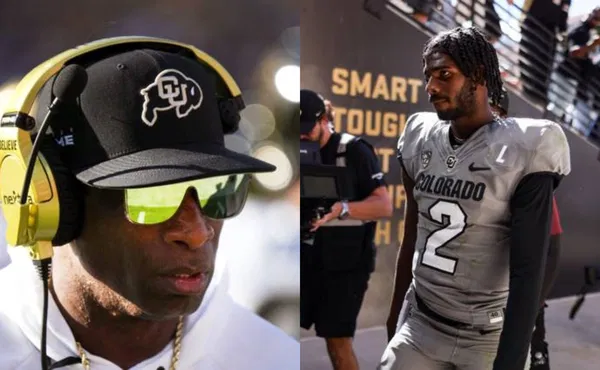College football operates in a unique and self-contained universe within the sports world. Unlike professional sports, where performance metrics often dictate outcomes, college football decisions—especially regarding team rankings and individual awards—are influenced by committees and panels. This introduces a level of subjectivity uncommon in pro leagues. For individual awards, like the Heisman Trophy, the selection process becomes even more intricate due to differences in team schedules and competition levels. Shedeur Sanders’ case highlights this disparity, drawing considerable attention to the perceived injustice.

Shedeur Sanders, the standout quarterback for Colorado and son of head coach Deion Sanders, has faced what many consider a significant snub. Despite a stellar season, he was not invited to the Heisman Trophy ceremony. This decision has sparked debate, especially since many fans and media members argue that Shedeur is the best quarterback in college football. Yet, two other quarterbacks, including Oregon’s Dillon Gabriel, received invitations to New York for the prestigious award.
Deion Sanders, never one to shy away from defending his son or addressing perceived slights, took to social media to voice his frustration. Reposting a graphic on X (formerly Twitter), Coach Prime compared Shedeur’s statistics to those of Dillon Gabriel. The data showcased Shedeur’s superior performance, including nearly 400 more passing yards and a significantly better touchdown-to-interception ratio. Accompanying the post, Deion exclaimed, “Lawd Jesus!” to express his disbelief at the decision.
While the numbers support Shedeur’s case, college football awards are about more than just statistics. Factors like team performance, strength of schedule, and media narratives often play a role in shaping decisions. Even with this context, many believe Shedeur has a strong argument for inclusion among the Heisman finalists. The debate underscores the complexities of the college football landscape, where merit and perception often collide.
This incident raises broader questions about the fairness of award voting and the inherent subjectivity in college football’s evaluation processes. The controversy around Shedeur Sanders’ exclusion has ignited discussions about whether the Heisman Trophy truly represents the best player in college football or if external factors too often cloud judgment.